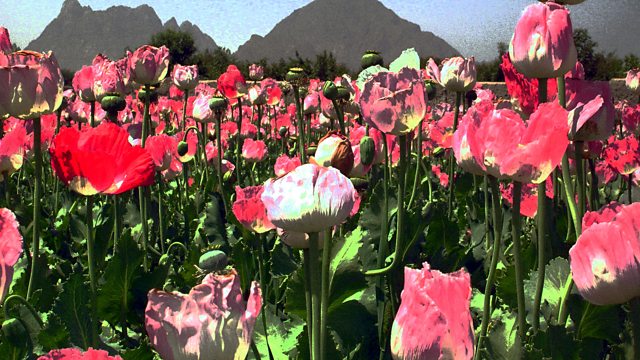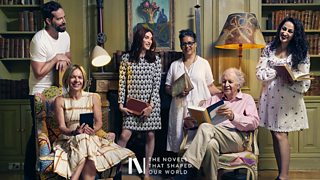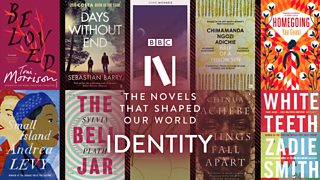
Episode 2
Historian Lucy Inglis explores man's long and complex relationship with the juice of the opium poppy.
Derived from the juice of the poppy, it relieves our pain and cures our insomnia. It may even inspire great art. It also causes addiction, misery and death. Historian Lucy Inglis' new book explores man's long and complex relationship with opium.
The late 18th Century saw the emergence of the Romantic movement in the arts, and many of the most celebrated literary names of the day - writers like Thomas de Quincey and Samuel Taylor Coleridge - were opium addicts.
Laudanum, they believed, fuelled their creativity - and indeed Coleridge's great poem Kubla Khan was famously inspired by a drug-induced dream when he was a young man of 25.
But while the "milk of paradise" may have provided short-term artistic inspiration, it came at a price. Coleridge died a housebound addict in 1834, described by his visitor Thomas Carlyle as "a passive bucket" that was simply "pumped into." And De Quincey, author of Confessions of an English Opium Eater, lived a ramshackle life that was "riven by disputes, nightmares, debt and drug dependence."
Milk of Paradise is written by Lucy Inglis and abridged by Anna Magnusson.
The reader is Anita Vettesse.
The producer is David Jackson Young.
Last on
More episodes
Previous
Credits
| Role | Contributor |
|---|---|
| Reader | Anita Vettesse |
| Author | Lucy Inglis |
| Abridger | Anna Magnusson |
| Producer | David Jackson Young |
Broadcasts
- Tue 14 Aug 2018 09:45大象传媒 Radio 4 FM
- Wed 15 Aug 2018 00:30大象传媒 Radio 4
Opening Lines
Sample our books and authors Clip Collection
Interviews, previews and reviews
Subscribe to the Short stories podcast
Featuring the best stories from the UK's finest writers
How many of these 100 Novels have you read?
大象传媒 Arts: Books
Celebrating reading and the 100 novels that have shaped our world.




